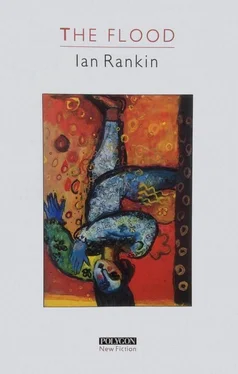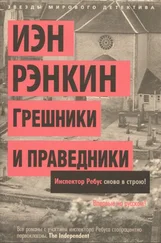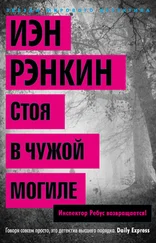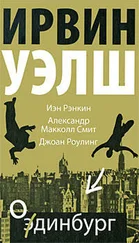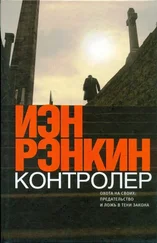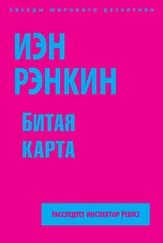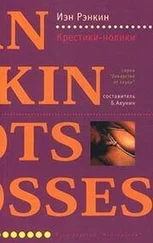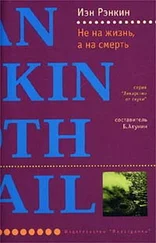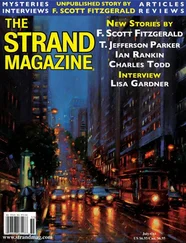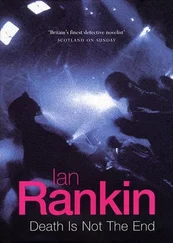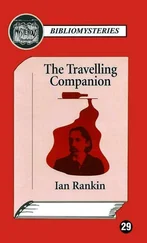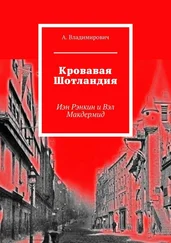There was a new minister in town, it was said. It had not taken long. Out with the old and in with the new, with no respectful period of mourning. She would have expected better from the Church. She would go to kirk this week and see what he was like. She doubted if she would like him nearly as well as she had liked the Reverend Davidson. Still, she had to give the man a chance. Everyone warranted a chance.
And perhaps, just perhaps, she would find that she could talk to him.
The single bell of St Cuthbert’s Parish Church pealed out across the sleeping rooftops of the hungover houses in its midst. The Sunday morning had begun with the sluggish movements of the newspaper boys. A few keening dogs had been walked by their listless owners. Birds feasted up and down Main Street on the discarded wrappings of fish and chips from the raucous night before. These gouged balls of paper would be blown by the morning’s breeze down Main Street and into the churchyard itself, lying against the dank walls of the church as if listening to a neighbour’s argument. A car would stop occasionally beside the newsagent’s for the Sunday paper and the day’s ration of cigarettes. A pool of vomit near the door was finally and inexorably trodden into the shop, making its sticky smell obvious to those who had so carefully tried to avoid its presence outside. Old ladies with old hats pinned to their heads, so long unfashionable as to be nearly fashionable again, would mutter dark utterances to the bleary-eyed newsagent before departing with their pandrops towards the church. They would walk the slow length of Main Street commenting upon a full week’s gossip, would enter the awkwardly gravelled kirkyard, and would stand outside talking until the chill pushed them into the doorway, where a trim and proper elder stood smiling, hands clasped importantly in front of him. He would offer them a hymnbook as usual, and they would refuse as usual, having possessed their own (they would inform him) since they had first been able to read, and that wasn’t yesterday. The organist, ruddy-cheeked, had chosen his piece and was playing it to the morning chorus of whispers and coughs as the self-conscious congregation settled into the well-worn, comfortable rhythm of Sunday morning. The bell tolled overhead and around them. It was as if the outside world had never been.
When Mary came into his room carrying a cup of tea and two ginger-nuts, Sandy was waking from another tolerable dream — though a kind of nightmare — concerning Rian and himself.
They were being chased by a gang, and had climbed to the top floor of a block of flats in order to escape. They had found one flat open and had swept inside, locking and bolting the door behind them. It had been a nice flat and Rian had immediately made herself at home, trying out the gadgets in the kitchen and turning on television, radio, stereo. He tried to make her see the danger they were in. The door was being pushed at by some vast, faceless force, but she had ignored him. Look, he said, I’m trying to save us. Can’t you help? She had come to him, smiling, as distant as ever, had kissed him on the cheek and had placed a bread knife in his hand. Use this, she had said, and kissed him again. He looked at the obscenely serrated edge of the knife. The door opened a fraction, held only by the chain, and a hand crawled round its edge, fiddling with the lock, trying to snap the flimsy chain. Methodically, but hating himself, he had begun to slice at the hand, which he wedged with all his might into the gap in the door so that it could not escape, and suddenly it was an animal, its body its own, belonging to nothing outside of the door. Gashes, but no blood. Screams, but no mouth. It had dropped to the floor in snake-like agony. Rian had come up behind him with a cup of tea. She had tapped him on the back. A cup of tea, Sandy, she had said. A cup of tea.
It was his mother’s voice, too sharp to be part of the dream. He blinked open his eyes and brought his head out from beneath the sheet. The light bit him. The curtains had been opened and his mother was standing in her dressing gown with a mug of tea in her hand.
‘Cup of tea?’ she repeated. He was plunged back into the dream for a moment, and at the same time was aware of an erection beneath the bedclothes. He sat up, concentrating on the tea and the new day, feeling the throb easing.
‘Thanks, Mum,’ he said. She began to leave the room.
‘Don’t bother going back to sleep now. There’s new bread and jam for breakfast. I forgot to get bacon yesterday.’
He could smell the bread. His erection was dying. Hunger and the need to pee redirected his thoughts. He swung out of bed and began to dress, sitting on the bed when finished to dip the ginger-nuts in the milky tea and suck the flavour from them. He had no plans for today. Unless his mother had anything arranged, he would go for a walk later and see who was around. Perhaps Colin would be in the park. He would not go to the mansion. He had not the courage yet.
Downstairs, the ritual of Sunday breakfast was waiting like some seldom-visited aunt. On Saturdays he would usually be out of the house before his mother could call him back to eat something. Saturday was the exciting day of the week. Everything else was build-up or anticlimax, but not a minute of Saturday could be wasted. During the weeks prior to the holidays breakfast had been the rush not to be late for school, a hurried, near-involuntary thing. He would cram toast into his mouth while moving from kitchen to bathroom, bathroom to bedroom. Inevitably, along the way his mug of tea and some piece of vital written work would be lost, and a trail of minute crumbs would show the steps taken to locate both.
Sundays, however, were different. On Sunday there was nothing to hurry for, no school to be late for. On Sunday Sandy had to sit through a lengthy interrogation by his mother while she fed him and poured out mug after mug of tea. She would ask him about his week, and they would discuss important things like potential holidays and television and work. He would answer patiently: she deserved nothing less. He could see how much these mornings meant to her. It was as if she were trying to pretend that they were a normal family, cramming all the mundane details of the week into one overlong morning. She seldom complained on those odd Sundays when a game of football took him careering out of the house, slamming the door on breakfast and conversation and her loneliness. Sometimes when he looked at her across the table he would notice something insignificant in itself such as that her hand shook as she poured the tea, or that she seemed tired, or that she had blistered the back of her hand on the iron leaving a raw red scar against the purer white, and on those occasions something would well up in him: pity and love perhaps, but those words were never adequate.
She was his mother, and one day she would die. It was a chilling reality. He fended it off with thoughts of Rian. Perhaps they would marry one day. On this particular Sunday morning his mother seemed sombre, and he contemplated telling her that he had a girlfriend to cheer her up. But having said that, what else could he truthfully tell her? No, he could not yet bring himself to share his secret love with anyone — especially a love so strange and uncertain and the knowledge of this isolation caused him to fidget in his chair as his mother leaned over the table with her plate of new bread, heat rising from it even in the warmth of the kitchen.
‘Are you going to church this morning, Mum?’ he asked.
She stopped stirring her tea. She contemplated the bread before her.
‘I don’t know,’ she said. ‘Yes, I thought I might go along to welcome the new minister. And then I thought I’d go visit your gran.’
Читать дальше
